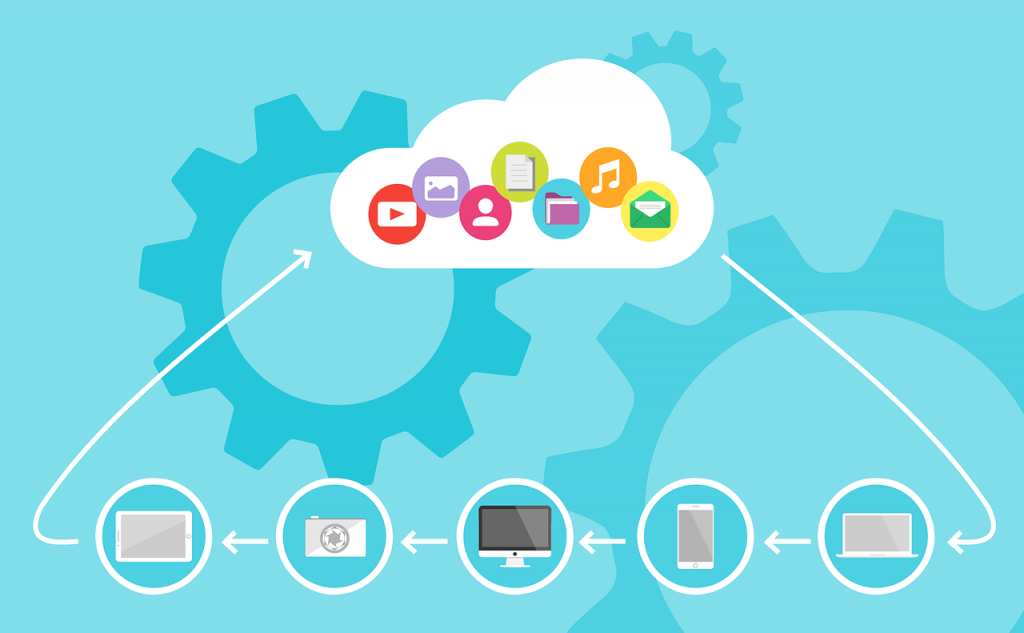
Businesses worldwide are using cloud storage at a whopping rate. The cloud storage market will increase from $37 billion in 2019 to a mind-blowing $89.9 billion in 2022, according to research performed by Markets and Markets. The figures show a compounded annual growth rate of 23.7%. Some of the factors driving the demand for cloud computing include the need for enterprise mobility for efficiency, the development of the Internet of Things (IoT), and the requirement for lower Operational and Capital Expenditures.
Cloud computing offers a wide range of benefits for online retailers such as agility, flexibility, lower costs, accelerated time-to-market, high-performance, scalability, and strong security.
A dynamic cloud infrastructure overcomes traditional cyber breaches such as misconfigured environments, complex infrastructure and long recovery response times from a compromised system. Here’s a list of the top 5 benefits of cloud computing for business.
Customizable Cloud Hosting Services
Before choosing a cloud hosting company to take your e-commerce business to the next milestone and transition to cloud computing. Page load speed is the main reason why e-commerce businesses follow the cloud migration path. Amazon achieved a 1% increase in its overall revenue by 1% for each millisecond of improvement in page load speed.
According to Kissmetrics, 40% of customers abandon sites with a load page speed of more than 3 seconds. A 1-second page response delay can cause a 7% decrease in conversion rates. And for an e-commerce business, which generates $100,000 every day, this decrease can result in $2.5 million lost sales every year.
A customizable cloud hosting service delivers solutions, which address current requirements and future needs. You’ll enjoy personalized architecture services, backup and data recovery services, support for the migration to the cloud, cost management solutions, and cost-modelling. Network engineers provide ongoing support to ensure streamlined performance.
Scalability
Cloud servers allow e-commerce businesses to scale at an accelerated rate and easily support high demand. Most online stores have heavy traffic during special events such as product launches or holiday sales, which require resources to meet the increased spike in product demand. Cloud computing offers the flexibility to upgrade and downgrade the number of servers as required. Once the promotional event is finished, you can ensure that your operating costs are in line with your revenue.
Increased Security and Improved Back-up
A cloud server also allows you to back up customer data in an efficient way. Power surges, corrupt software or system breaches can wipe out your database if it’s not secured or backed-up. A dedicated cloud server offers the option of physical disc copies or file syncing to back-up your database.
Security enterprise applications enable critical measures. Security measures are implemented at application and network levels such as data encryption, personnel biometric screening solutions, two-factor authentication and certification through 3rd party assessment software.
Despite traditional hosting companies offer a specific level of security, cloud service providers leverage on self-governance and premium technology. They’re ISO27001 compliant, they have SysTrust certification, and PCI-DDS solutions for data processing in an encrypted and completely secure environment. The level of SSL encryption usually stands at 256 kb encryption.
File Sharing Solutions
Ecommerce businesses store data on the cloud to facilitate file sharing. Cloud storage allows companies to share information without the need for a virtual private network. It decreases the overall costs of the network and enables the sharing of large files. You can test how cloud-based hosting performs on a smaller scale before making a commitment to migrate.
Trust
Customer trust is at the centre-point of an e-commerce business’s success. Thanks to cloud technologies, you can communicate with your customers through email alerts and newsletters about downtime related issues, your clients can access your product pages at great speeds, and never worry about privacy security.
Publish the credentials of your cloud hosting provider to build your customers’ trust and confidence. Educate them about the increased layers of security and protection established. You’ll experience positive reactions from your customer community.
Conclusion
Top-quality cloud-hosting services provided by reputable suppliers allow e-commerce businesses to concentrate on their main activities such as the sale of services and products. Cloud vendors handle technology challenges and issues.
Also, the pay-as-you-go scheme enables increased resource management and results in long-term savings. Virtual servers can help e-commerce businesses save about 80% of expenditure.
Cloud computing also facilitates opportunities to improve internal organizational processes. For example, it enables the management of backend processes, allows for increased focus on main competencies and strengthens service quality and product development. And e-commerce companies can make applications live 5 times faster on a cloud computing server compared to a normal server.
Cloud computing provides complete data security as providers perform a variety of complex audits to prove their capabilities to customers. Data and privacy protection measures can be installed across applications, facilities, and the network.
